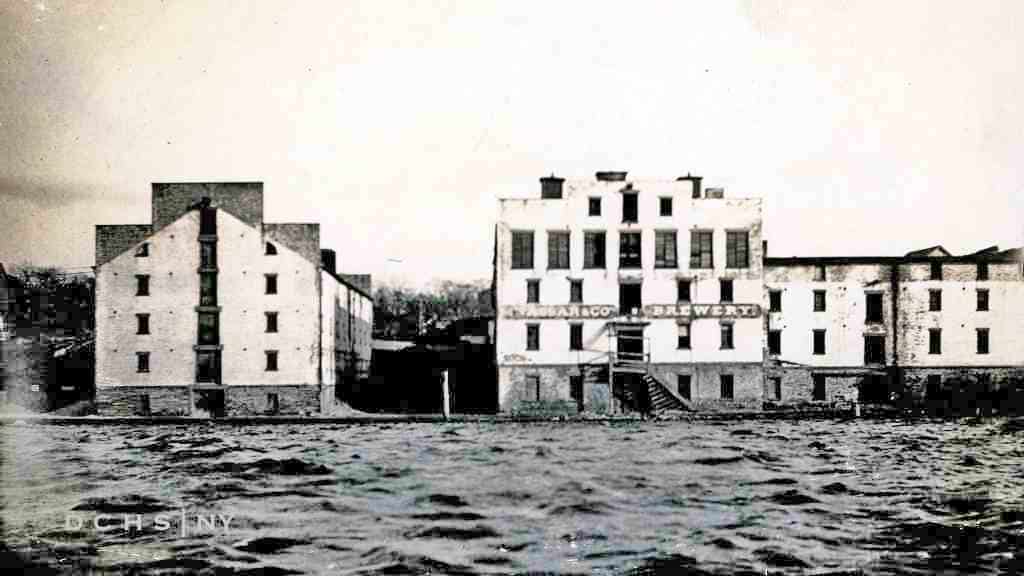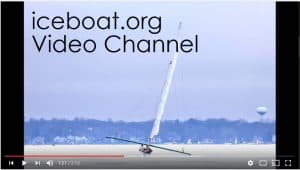Vassar Brewery: The First Iceboat Bar
 America’s First Iceboating Bar & Club House
America’s First Iceboating Bar & Club House

The Adventures of Iceboat Ike at Chucks by Harry Whitehorse
Chuck’s on Geneva, the Southside Ice Yacht Club on Winnebago, and Springer’s on Kegonsa, are a few bars that shape the social fabric of iceboating. After a day of good racing, walk into one of these establishments, and you’ll find boots with creepers scattered around the door, helmets, and coats piled on the pool tables. They are places where racers recount the day’s lap roundings and hash out ideas about finding more speed.
It’s not surprising that America’s first iceboating bar was in Poughkeepsie, New York, acknowledged as the sport’s American birthplace. Though he is often incorrectly cited as being America’s first iceboater, Poughkeepsie resident Oliver Booth and Jacob Buckhout were instrumental in sport’s growth. When Booth, Buckhout, and friends were ready for a cold one, they could have sailed their stern-steers up to the Vassar Brewery on the waterfront, which served as the think tank for early American ice sailing. The brewery also served as the start and finish line for Hudson River regattas.
“The Vassar Brewery office was the club house where all the river sportsmen gathered to discuss matters and partake of Mr. Booth’s specially brewed ale. About 1858 the possibilities of the development of the skate-boats was under consideration among the brewery coterie, and experiments of various kinds were tried with steel runners, heavy and light centre timbers and various cuts of sails.”
THE EAGLE’S HISTORY OF POUGHKEEPSIE BY EDMUND PLATT PUBLISHED IN 1905
I’ve stumbled across many odd connections in the sport’s history, and Vassar University is one of them. The name Vassar is familiar because it is associated with the college founded by the brewer, Matthew Vassar. The brewery building no longer exists, but if you are ever in Poughkeepsie, stop by the waterfront park and hoist a cold one to those who started it all.
I am indebted to Archie Call and Henry Bossett for sharing their early iceboating history research with me.


